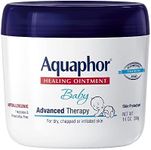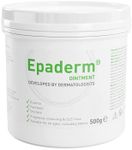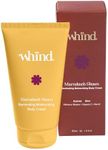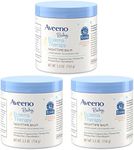Buying Guide for the Best Baby Eczema Creams
Choosing the right baby eczema cream is crucial for managing your baby's sensitive skin. Eczema creams are designed to soothe, moisturize, and protect the skin, helping to alleviate the discomfort associated with eczema. When selecting a cream, it's important to consider your baby's specific skin needs, any allergies, and the severity of their eczema. Always consult with a pediatrician or dermatologist if you're unsure about which product to choose, especially if your baby's eczema is severe or persistent.IngredientsThe ingredients in a baby eczema cream are vital because they determine how effective the cream will be in soothing and healing the skin. Look for creams with natural, gentle ingredients like colloidal oatmeal, shea butter, or ceramides, which are known for their moisturizing and skin barrier-repairing properties. Avoid creams with fragrances, dyes, or harsh chemicals, as these can irritate sensitive skin. If your baby has known allergies, ensure the cream does not contain any allergens. Choose a cream with ingredients that align with your baby's skin needs and sensitivities.
Moisturizing AbilityMoisturizing ability refers to how well the cream can hydrate and maintain moisture in the skin. This is important because eczema-prone skin often lacks the ability to retain moisture, leading to dryness and irritation. Creams can range from light lotions to thick ointments. For mild eczema, a lighter cream may suffice, while more severe cases might require a thicker ointment to provide a stronger barrier against moisture loss. Consider your baby's skin condition and the climate you live in when choosing the level of moisturizing ability needed.
Hypoallergenic PropertiesHypoallergenic properties indicate that a product is less likely to cause allergic reactions. This is crucial for babies with eczema, as their skin is already sensitive and prone to irritation. Look for creams labeled as hypoallergenic, which means they have been formulated to minimize the risk of allergies. However, it's still important to do a patch test on a small area of your baby's skin to ensure there is no adverse reaction. Choose a hypoallergenic cream if your baby has a history of allergies or if you want to minimize the risk of irritation.
Steroid ContentSteroid content in eczema creams refers to the presence of corticosteroids, which are used to reduce inflammation and itching. While effective, they should be used with caution, especially in babies, due to potential side effects with prolonged use. Non-steroidal creams are generally preferred for long-term use in infants. If your baby's eczema is severe, a doctor might recommend a cream with a low-dose steroid for short-term use. Always follow medical advice when using steroid creams and consider non-steroidal options for regular use.
Ease of ApplicationEase of application is about how simple and comfortable it is to apply the cream to your baby's skin. This is important because frequent application is often necessary to manage eczema effectively. Creams that spread easily and absorb quickly can make the process less stressful for both you and your baby. Consider the texture and consistency of the cream; some parents prefer lotions for quick absorption, while others might choose ointments for their protective barrier. Choose a product that fits into your routine and is comfortable for your baby.

















